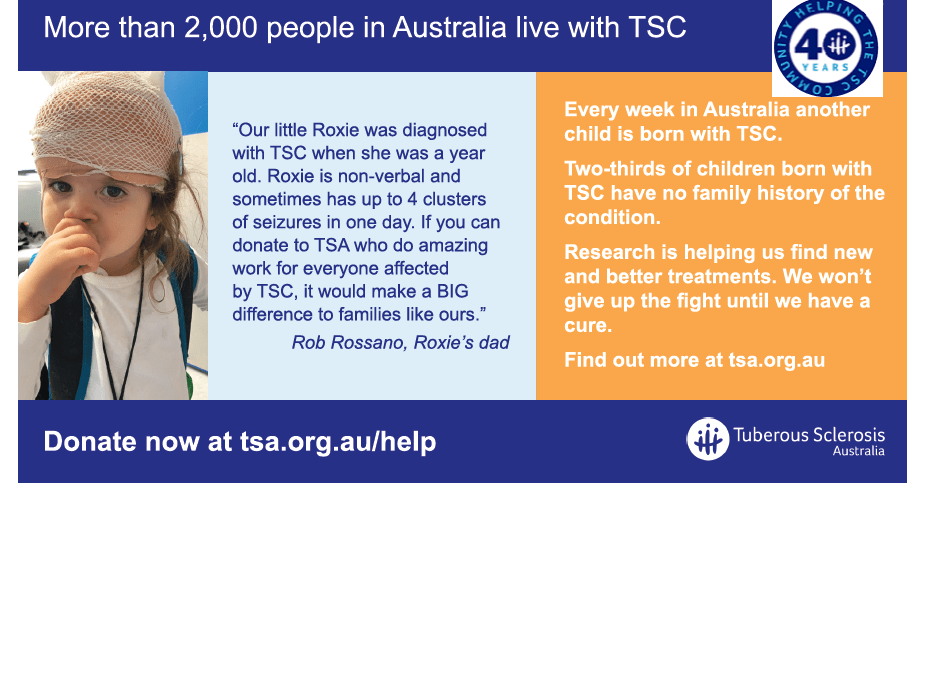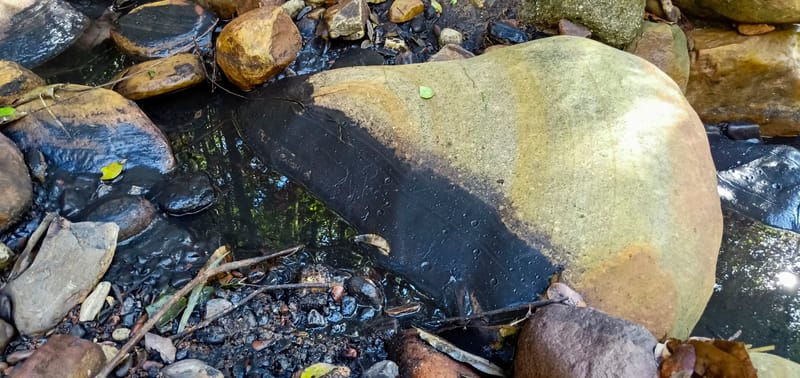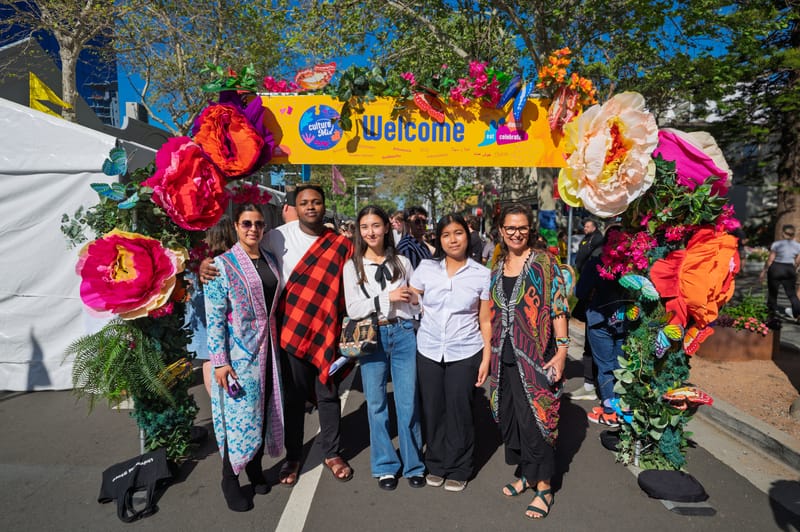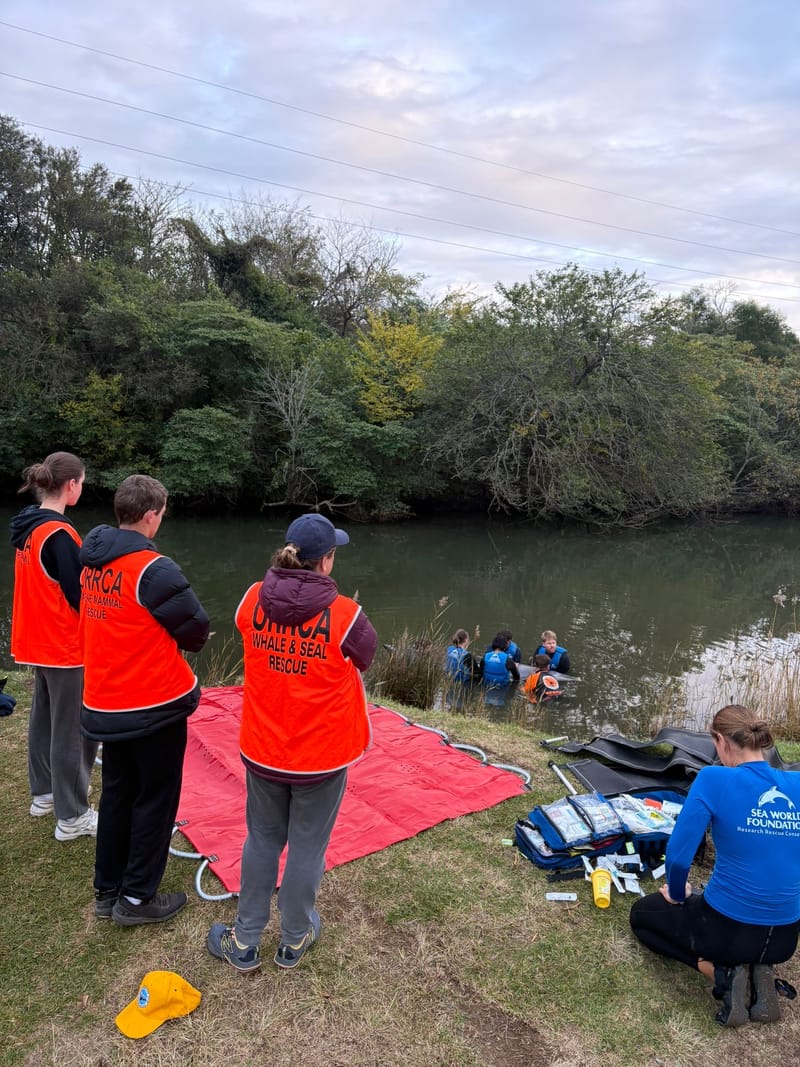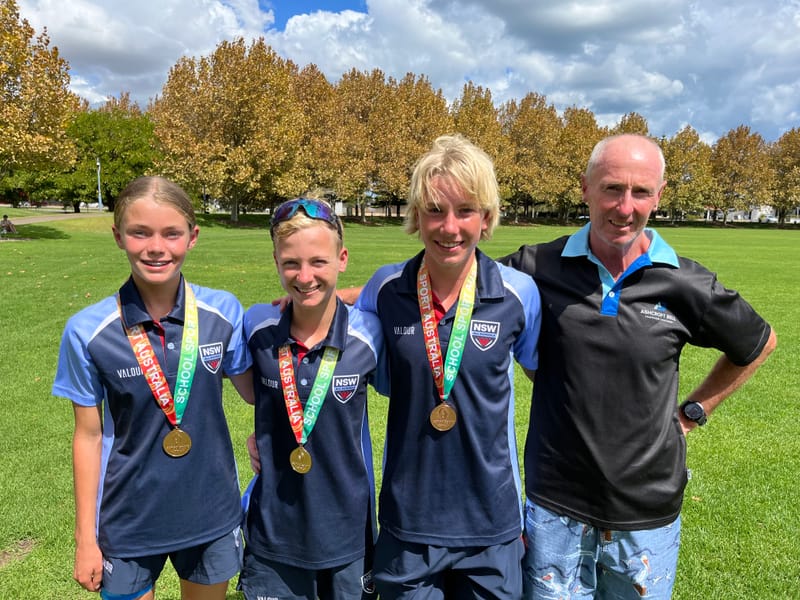‘A true inspiration’
Kate Garrard, of Tuberous Sclerosis Australia, shares the story of the organisation’s founder, Lynn Wilson. Lynn Wilson has lived in the Illawarra for almost 70 years and is the founder of the Australasian Tuberous Sclerosis Society – now known...
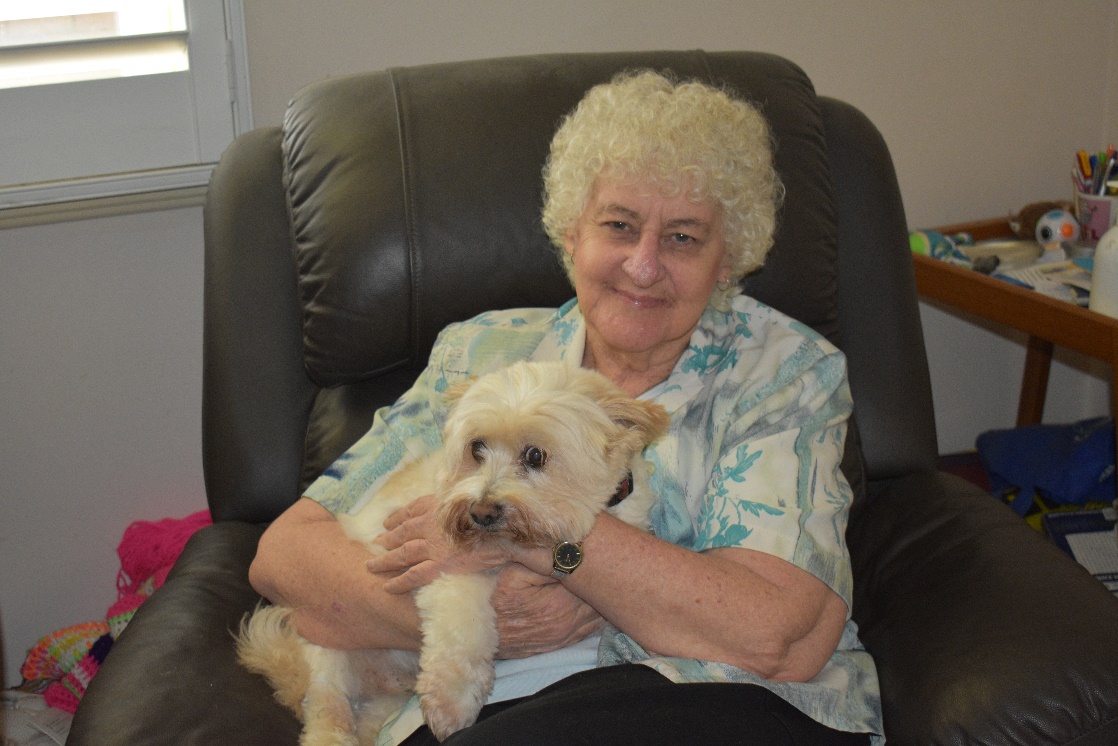
Kate Garrard, of Tuberous Sclerosis Australia, shares the story of the organisation’s founder, Lynn Wilson.
Lynn Wilson has lived in the Illawarra for almost 70 years and is the founder of the Australasian Tuberous Sclerosis Society – now known as Tuberous Sclerosis Australia (TSA). Back in 1981, Lynn set up the organisation because she, “just wanted to make sure another family didn’t go through what I have been through.”
As TSA marks its 40th anniversary, we look back at how far the organisation has come and how Lynn’s vision, determination and dedication has helped hundreds or even thousands of families living with Tuberous Sclerosis Complex (TSC).
When Lynn was diagnosed most doctors in Australia had not heard of Tuberous Sclerosis and families were instructed to write to doctors in England to get information on this rare disease. Lynn’s vision and hard work changed all that.
Families now have access to peer support programs, accurate and up-to-date medical information on TSA’s website, a dedicated free telehealth nurse service.
This is Lynn’s story.
Lynn cannot remember a time when she didn’t have facial angiofibromas. At school, as a child and a teenager, she always felt very self-conscious of her red and marked face. She recalls that she was tormented and called names by other children simply because she looked different. Lynn sought advice and help from a doctor, but was told that she simply had blood vessels that were too close to the skin and that nothing could be done about it.
As she got older, Lynn had fairly frequent ‘niggles’ with her kidneys, but having been X-rayed, she was told that there was nothing wrong with her and it was suggested that perhaps she needed to visit the psychiatric ward.
Lynn left school after Year 8 and married Andrew McKinnon on her 19th birthday. Her daughter Tracey was born on 1 September 1971.
Lynn soon observed differences and delays in Tracey’s development. By the time Tracey was a few months old, she was experiencing epileptic seizures and the seizures worsened as time passed. Tracey was originally classed as ‘epileptic’.
Lynn continued to seek medical help. Tests were done. Finally, in February 1973, Lynn and Tracey were diagnosed with Tuberous Sclerosis Complex. Lynn was 21 years old and Tracey was 17 months old. The doctor told Lynn and Andrew that these were the first cases of TSC he had diagnosed.
Lynn received very little support. It was a lonely and isolating time. Health professionals advised her not to have more children and performed a tubal ligation to block her fallopian tubes and prevent any further pregnancies. This resulted in many infections and a need for Lynn to take round after round of antibiotics. Two years on, just before her 23rd birthday, she had a full hysterectomy. Despite wanting a big family, because of TSC, Lynn could also not adopt or foster children.
In those pre-internet days, Lynn and Andrew wanted to find out more about tuberous sclerosis and took themselves off to the Mitchell Library, part of the NSW State Library. A helpful librarian told them there were lots of books – all but one turned out to be books on tuberculosis! And the one book that did reference TSC, told them Tracey would not reach adulthood and Lynn herself would deteriorate to the level of a high-grade schizophrenic, become mute and die in her 30s.
Tracey’s TSC took a very different path to Lynn’s.
Tracey, has never achieved seizure control and she has severe behaviour and sleep issues. As a child there were times when Tracey would go for days or even weeks on end sleeping one hour in 24. Because of this, escalating issues with epilepsy and behaviour and lack of support, Tracey was admitted into a private nursing home facility permanently when she was seven years old.
On a trip to a bookstore in Wollongong, Lynn found the name and address of the British TSC Association and got in touch with them. She recalls that, when she read the information from Britain, she felt as if she had won the lottery. It was clear that everything Tracey was experiencing was a part of Tuberous Sclerosis Complex – it wasn’t her imagination and it wasn’t because she was a bad mother. The British Association didn’t believe Tracey would be dead by the age of 16 or Lynn would deteriorate. Thankfully, they were right.
Lynn was determined that others should have more support than she had and she says that’s what led her to set up the society. She started by writing to New Idea magazine, who printed her letter. As a result, 30 or so people who believed they or one of their family had TSC contacted Lynn.
Lynn devoted herself to helping these people, working long hours and always being available.
As a result of her efforts, Australia was the fourth country in the world to register a TSC charity, joining the UK, the USA and Holland. Lynn’s husband, mother-in-law both served as presidents. Lynn served as secretary-treasurer for 19 years and was also on the committee after that. Other family members and friends served on the committee at times. Lynn deeply appreciates the unwavering support her husband gave for so many years.
At one time, Lynn wrote to every Federal Member of Parliament in Australia to get laser treatment for angiofibromas on the Medicare schedule of item numbers. She compiled a quarterly newsletter for 15 years. In the early days of TSA, she even crocheted items for raffle prizes.
Lynn admits to being pretty astounded TSA now has a dedicated nurse service, a website, education events, a magazine and newsletters. The organisation has, she proudly says, come “a very long way indeed!”
In 2000 Lynn was awarded an Order of Australia medal. TSA General Manager, Jackie Gambrell, says: “Thank you, Lynn Wilson. You are a true inspiration to us all.”
